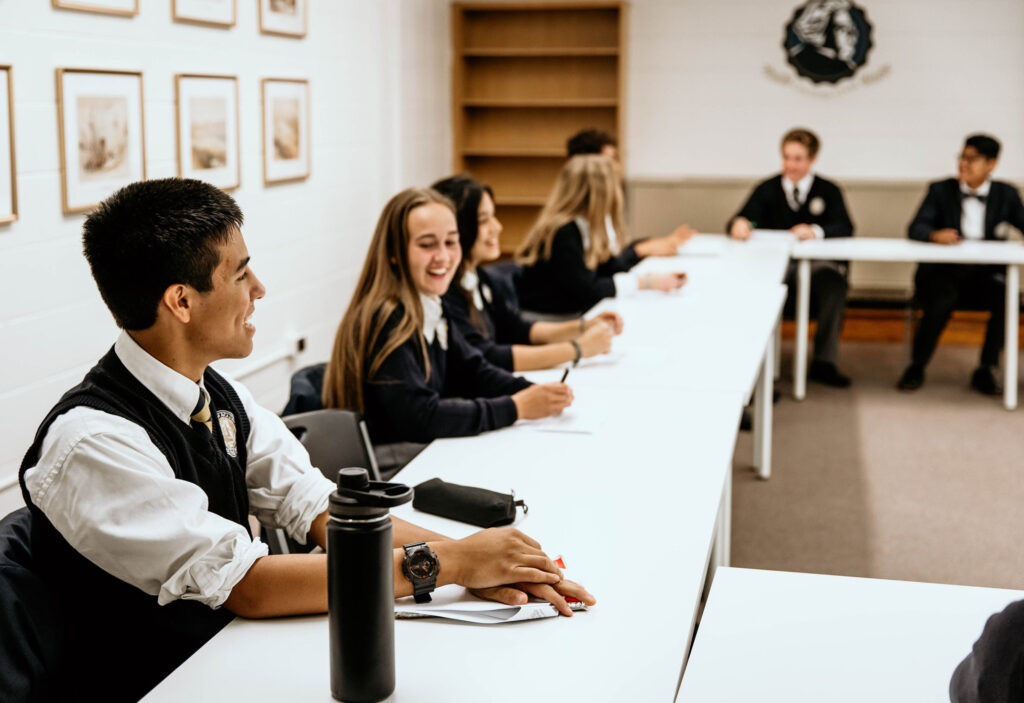
In the 2026-2027 school year, we will welcome our first class of freshmen and possibly a sophomore class as well, and then add a class each year until we serve students in grades 9-12. Our young men and women will attend school together as part of the same supportive and nurturing community, but as enrollment and staffing permit we hope to offer separate classes for young men and women so they can reap the benefits of single sex education while in a coeducational school. Most Chesterton students are Catholic, but students of other faith traditions who desire the education and formation Chesterton schools offer are also welcome and valued in our community.
As we do not receive funding from a parish, Diocese, or the CSN, and we strive to keep tuition as affordable as possible for our families, Chesterton schools cut overhead costs by seeking out convenient but humble locations for our classrooms and sometimes move over time as we grow in enrollment and resources. Ongoing fundraising helps us close the gap between tuition revenue and our operating costs, and our families help with those efforts however they are able.
A Chesterton education is intentionally low technology, eschewing screens in favor of rich conversation and engagement with classmates, teachers, and texts. Our classical curriculum includes four years of math and science, four years of history and literature, four years of theology and philosophy, four years of art and music, and much more. All Chesterton students participate in choir, debate, and drama and in the fun and formative House System modeled after that of Oxford and Cambridge Universities. Our education extends beyond the walls of the classrooms, with opportunities to participate in sports and clubs as well as retreats and pilgrimages, including a capstone pilgrimage to Rome with other Chesterton school students. Learning, like life, is an adventure, and we hope you will consider joining us.
